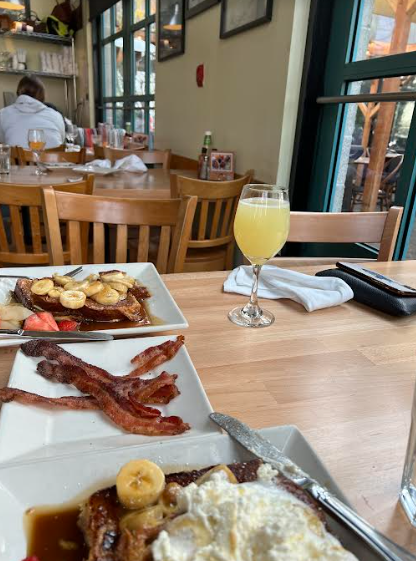In recent years, our economy has gone through the ringer. A pandemic, various economic fluctuations, and severe inflation. During COVID, local businesses and other companies took a punch, setting them back years or, in some cases, being forced to shut down. But since then, they have made up some of that lost progress, gaining their money back and even getting some new customers! With new technology, businesses have new tools to help them. Tools include things like tablets, and electronic card readers, and help servers more quickly and efficiently to check customers out. However, with these new tools, people have noticed a dramatic increase in the percentages recommended at tipping prompts. Student Avery Newgard (10) says, “I feel like tipping has gone up and is more expected in companies where tipping isn’t typically as common.”.
A very common consensus among fellow Gig Harbor residents is that tipping has gotten outrageous. Tipping prompts all across Gig Harbor, and even the state, have gotten to the point where people are thinking that it is weird. Tipping is now normal in places where it was previously not necessary to tip, and this dramatic rise has set people off. When you go to check out somewhere, more often than not, a screen will be shown to you, and the all-too-familiar phrase “it’s just going to ask you a few questions there” will be instructed to you. Screens will often ask for things like emails, receipt options, and, finally, tipping options. Most frequently, there are three options for tipping that they recommend; there is also a custom tip and a no-tip option. Some percentage recommendations are as high as 45%.
Studies have shown that inflated tipping rates actually do a lot of harm on a human relations (HR) level. When tipping prompts are as high as they have been recently, it creates a lot of discomfort for both the customer and the employee. Making everyone involved feel very awkward and nervous. Employee Hailey Gray (12) says, “I think tipping is a good thing and is a nice gesture. But I do not believe that I deserve one. I think people are developing this sense of entitlement that they are owed, which is a poor attitude and means you probably do not belong in the service world if you think you’re owed something extra for doing your job. But I always appreciate what I get and think it should be an option, but it shouldn’t be forced upon anyone.”
Normally, tipping is for exemplary, outstanding service, showing your gratitude for their hard work. However, now it is an expected thing. Employees now expect to be tipped highly, and when they are not tipped as they are used to, they frequently get nervous, thinking they did something wrong when they didn’t. Customers now feel obligated to tip high amounts, even if the service is not up to par or is simply not satisfactory. “Tipping has gotten to be unreasonably high; it’s appropriate sometimes, but overall, it needs to chill out,” stated Hallie Hunter (9). In general, both parties involved feel very awkward and uncomfortable in situations where tipping is this high. Many people wonder if this new norm will ever go away, or at least decrease, or if this is the new reality we live in.


